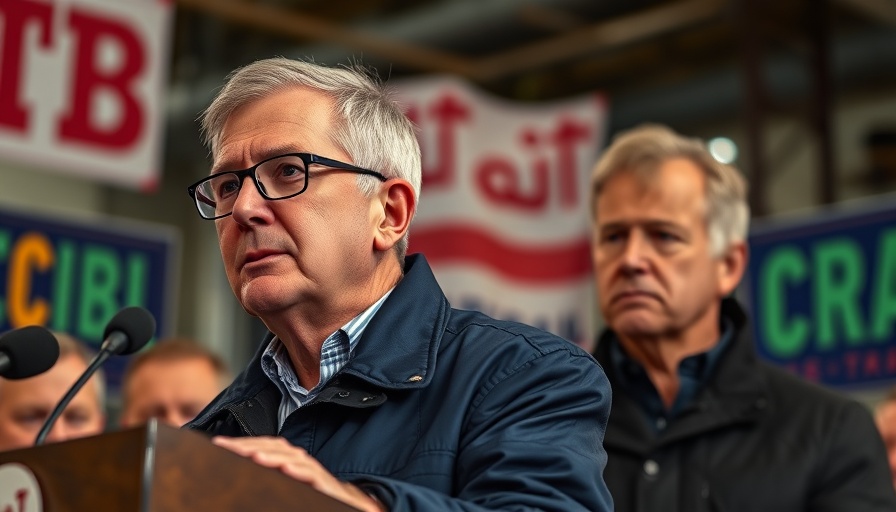
BC Conservatives Under Pressure: A Call for Unity and Action
The recent Union of BC Municipalities convention in Victoria served as a significant stage for discussions around the state of local governance, but it also highlighted a critical dilemma for the BC Conservative Party. Kelowna-Mission MLA Gavin Dew openly acknowledged the frustrations expressed by local governments towards their party during a recent interview, emphasizing that the Conservatives need to step up and demonstrate they are ready to govern. In his remarks, Dew called for his party to 'get your s**t together,' a statement that resonates loudly amidst the political turmoil they face.
The Path to Recovery: Addressing Internal Challenges
Just a year after a near-election victory, the BC Conservatives find themselves seemingly adrift. Dew pointed out that while complaints about the governing NDP are rampant, the lack of an effective opposition party is leaving many feeling unsupported. This internal discord was underscored by recent controversies surrounding the Conservative leadership. Critical discussions within the party have raised questions about its future viability, especially following Gianluca Sansone's ousting during a leadership review process marred by allegations of improperly bolstered membership numbers. Dew’s assertion that political parties must act like 'grownups' resonates not just with party members but with constituents who demand accountability and transparency.
A Historical Context: Political Struggles in BC
The current climate within the BC Conservative Party is reminiscent of historical upheavals observed in various political landscapes. Political controversies often seem to evade the party line, drawing attention to the need for rigorous oversight. Just as past major parties in BC faced scandals, the Conservative Party is now grappling with internal divisions. This history casts a shadow on current leadership and calls for an urgent reassessment of how the party operates. Without addressing the internal strife, the party risks repeating cycles of turbulence that characterize its existence.
Community Voices: Why This Matters
The real-world impact of political missteps can be severe for citizens in British Columbia. As the Conservative Party faces its internal battles, the daily lives of homeowners and residents hang in the balance. Issues such as small business support, economic stability, and community welfare are all at stake, thereby amplifying the urgent nature of political accountability in the region. Dew’s candid acknowledgment serves as an echo of community sentiment—the demand for better governance transcends party lines and must be heard.
Looking Forward: What Can Be Done?
In the spirit of unity, a call to action for the Conservatives seems imperative. Dew’s reflection on growth pains might serve as a catalyst for substantive improvement and mobilization. If the party can unite under shared goals and recommit to serving the community effectively, it could foster a more supportive environment for the residents it represents. Engaging local politicians, ensuring transparency in operations, and healing fractious relationships within the party should be at the forefront of their agenda.
Call to Action: Engage and Support Local News
As the political landscape shifts, the power of local journalism remains vital. Communities thrive on independent news platforms that hold political forces accountable. Support your local independent news outlets to foster integrity and ensure that community voices are heard. Every subscription or support can help amplify grassroots narratives that focus on real issues affecting our daily lives.
 Add Row
Add Row  Add
Add 




Write A Comment